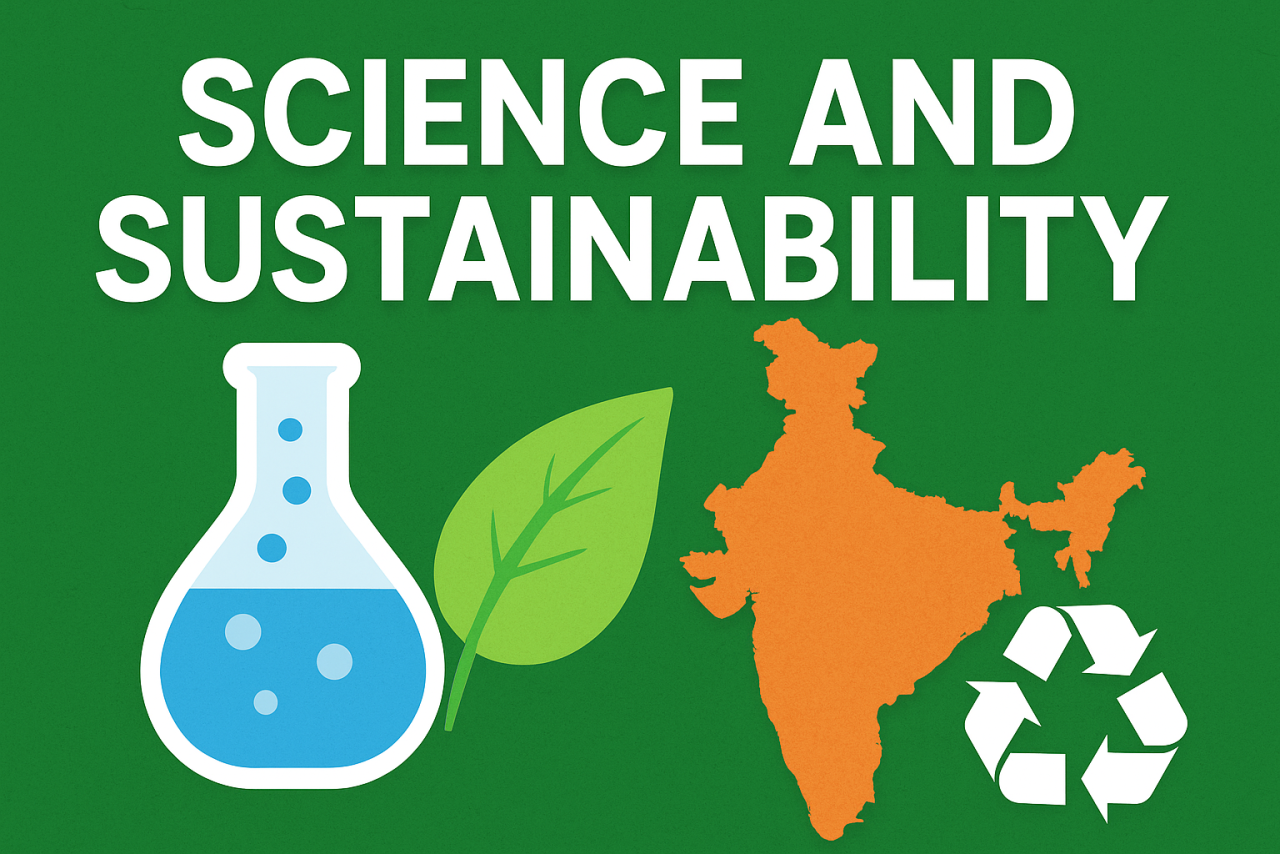
Developments in science and technology have transformed the world in extraordinary ways. Human capability has expanded beyond imagination, improving healthcare, communication, and daily life. Yet, this rapid advancement has also led to excessive consumption and environmental damage. Economic growth has come at the cost of ecological imbalance. To secure the future, nations like India must now focus on science that promotes both innovation and sustainability — a model where progress strengthens coexistence rather than endangering it.
Science has always been a key driver of human evolution, shaping everything from agriculture to space exploration. But every discovery brings responsibility. The more power science gives us, the greater our duty to use it wisely. Industrial growth and consumer lifestyles have stretched natural resources to their limits. As a result, climate change, pollution, and inequality have become serious global threats. The next phase of progress must therefore involve ethical innovation — one that combines technology with human values.
India’s cultural philosophy naturally supports such balance. For centuries, Indian traditions have promoted harmony between humans and nature. This perspective provides a strong foundation for a new kind of scientific progress — one that respects both the environment and human welfare. Science should no longer be viewed only as a means to create wealth or comfort but as a tool to sustain life on earth.
The energy sector illustrates this balance well. Modern life depends heavily on energy, yet most of it still comes from fossil fuels, which are limited and harmful. Renewable sources such as solar and wind are promising, but they depend on local conditions. Nuclear energy, though often misunderstood, can offer a stable and low-emission option if managed safely. With the right safeguards, it can meet growing energy demands without worsening climate change.
India has achieved remarkable progress in nuclear technology. The country’s research into thorium, a naturally available resource, offers a unique opportunity to develop clean and secure energy systems. However, this path requires transparency, safety, and public trust. By addressing these concerns, India can become a model for sustainable and independent energy growth.
The future of science must also be inclusive. Progress should not be limited to laboratories and corporations; it should reach every community. Scientists, educators, and policymakers must work together to make research meaningful for everyday life. Public participation in science can ensure that innovations are socially responsible and environmentally sound.
Education plays a central role in shaping this vision. Students should learn that science is not just about discovery but also about responsibility. They must see the connection between curiosity and conscience. When young minds are trained to value both innovation and sustainability, they become capable of creating solutions that protect the planet while improving lives.
India stands at a historic turning point. With its strong research institutions, skilled scientists, and deep-rooted values, the country can lead the global movement for sustainable science. By investing in research that supports collaboration, ethics, and inclusion, India can demonstrate that development and coexistence are not opposing goals but complementary ones.
As Anil Kakodkar, former chairman of Atomic Energy Commission of India, highlights that the time has come for a collective conversation — a partnership between science, society, and nature. True progress will emerge not from competition but from cooperation. Science must now evolve from a tool of domination to a bridge of understanding, where innovation uplifts humanity without harming the earth. In this shared journey of discovery and responsibility lies the true promise of a sustainable future.





















